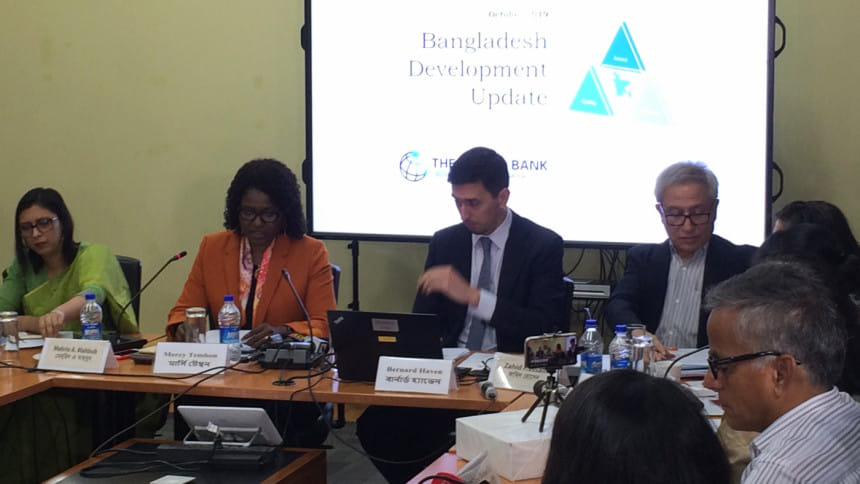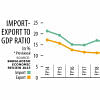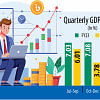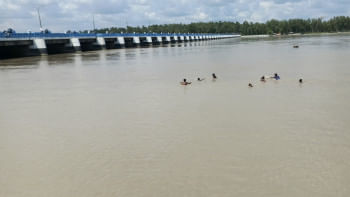GDP for FY 2019-'20 will be 7.2%: WB

World Bank (WB) has forecasted the Gross Domestic Product (GDP) growth rate of Bangladesh at 7.2 per cent for the fiscal year 2019-20, while government's projection for the same fiscal year in the national budget was 8.2 per cent.
Bangladesh sustained strong growth in fiscal year 2018-2019, according to a report titled 'Bangladesh Development Update October 2019: Tertiary Education and Job Skills' launched today by WB at its Dhaka office.
The GDP growth rate for 2018-2019, officially estimated at 8.1 per cent, was higher than the previous fiscal year's rate of 7.9 per cent, the report says, though it predicts a relatively lower growth for the upcoming fiscal year.
Inflation is likely to rise modestly for reasons which include increased natural gas prices and possible crop production losses due to flood, the report explains.
Reforms in the financial sector, closing the infrastructure gap, and implementation of the Annual Development Plan are crucial for the country's progress, the report adds.
It warns of uncertainty in global economy, domestic risk in financial sector and exchange rate appreciation that may create a challenge for Bangladesh's competitiveness.
World Bank Country Director for Bangladesh and Bhutan, Mercy Miyang Tembon said, "Bangladesh's economy is projected to maintain strong growth backed by sound macroeconomic fundamentals and progress in structural reforms."
She said, "To achieve this growth vision, Bangladesh will need a high productivity economy. Human capital development that is responsive to labour market demand for higher level skills and to rapid technological advancements will be crucial."
World Bank Senior Economist and co-author of the report Bernard Haven said, "Labour market surveys repeatedly show that employers struggle to fill high-skill positions such a s technicians and managers."
"To bridge the demand and supply gap, the country must invest in skills training; ensure equitable access of female and poor students; establish public funding mechanism to develop market-relevant skills; and put in place an effective regulatory and accountability framework."
Only 19 per cent of college graduates are employed full-time or part-time and more than a third of tertiary level graduates remain unemployed one or two years after graduation, observes the report.

 For all latest news, follow The Daily Star's Google News channel.
For all latest news, follow The Daily Star's Google News channel. 








Comments